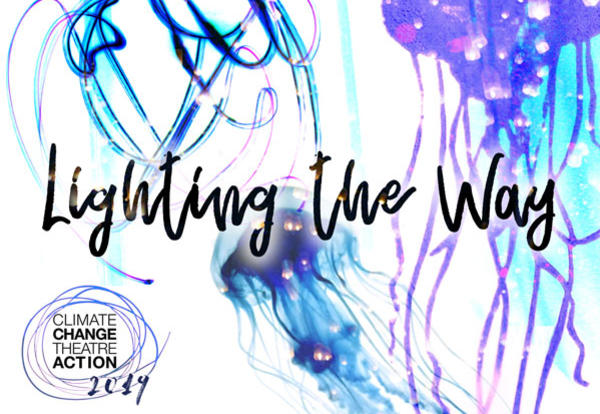
“Lighting the Way” will present Graceland’s theatre audience with different perspectives on climate change through 12 short vignettes – some silly and some intense, but all thought-provoking. The productions will run Nov. 21-24 – Thursday through Saturday at 7:30 p.m. and Sunday at 2 p.m. – in the JR Theatre in Shaw Center. The scripts include intense language, and it is not recommended for children. Tickets are available at the Shaw Ticket Office and at the door.
Associate professor of theatre and department coordinator Tracy Salter acknowledges that Graceland doesn’t usually become involved in political issues, but she recognizes the issue of climate change as a global one, bigger than any of us. “We’re all together on planet Earth,” she notes.
The Graceland performance is part of a global network of public forums on the subject of climate change under the umbrella of The Arctic Cycle consortium. The Climate Change Theatre Action, a participating group, offers a menu of 50 short scenes for stage performance. Of those, Graceland chose 12 for the local production. Theatres at Iowa State University and in Kansas City are also participating in the effort that includes large, small and regional theatres.
Salter admits that the choice of the subject carries risks, but she promotes it as good for students to experience varieties of thematic concept. She cites the long history of theatre to raise issues in novel ways. It is also a way that Graceland’s theatre department can reach across disciplines to support the university’s new sustainability major.
Salter will be working with three fellow directors: associate dean of academic affairs Gary Heisserer, assistant professor of theatre and scene design Kimberly Manuel, and assistant professor of English Dan Platt. Each of the directors chose three Climate Change Theatre Action scenes and the cast to perform them.
With Manuel’s guidance, theatre major Alecia Bennett ’21 will create her first mainstage lighting design. Manuel also “did an amazing job,” Salter notes, by designing the set and props with materials entirely in stock or those that can be recycled. Packaging materials and newspapers decorate the set, which is made to look like cardboard, while the cell phones and podium are made from cardboard. As a symbol of sustainability, everything from the set will go into recycling or storage where it can be reused.
At the start of the fall semester, the theatre department auditioned for the entire season of performances and created a pool of 30 students seeking roles. After choosing their scenes, each director put in a bid for the actors they wanted. Salter noted that the process went smoothly with only minimal negotiations.
Climate change is closely connected with the rise of toxic elements in the environment. The issue is personal for Salter. She points to individuals whose bodies can’t process certain poisons in the air, water or food sources. Her graduate theatre instructor in voice and acting , Heather Lea Hollingsworth, is one of those “canaries in the mine,” an early indicator of a danger. Susceptible to environmental toxins, the professor’s health reached a point where she could no longer teach. Salter’s first teaching job was as a successor for the professor she so admired, so is dedicating her scene “Canary” to her beloved instructor and friend.
Alumni, Faculty, Press Release, Students
May 6, 2025
“You’ve made this campus weird and wonderful in all...
Administration and Staff, Press Release
April 30, 2025
Graceland University is pleased to announce the appointment of...
Athletics, Press Release
April 29, 2025
The Graceland University wrestling program has been recognized among...
Alumni, Press Release
April 25, 2025
Graceland is delighted to announce that Michael Morain, a...
Faculty, Press Release
April 21, 2025
An era ended on a high note at this...
Administration and Staff, Faculty, Press Release
April 18, 2025
Graceland University is pleased to announce the appointment of...